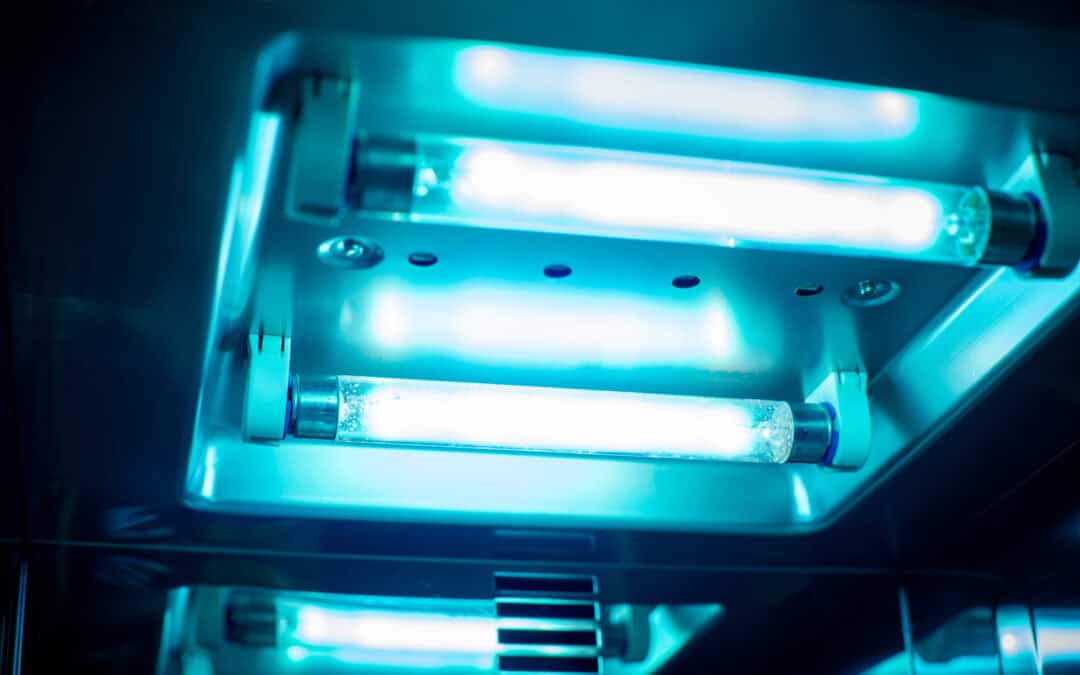In today’s health-conscious world, germicidal UV lamps have become a critical tool in the fight against harmful microorganisms. But how do these specialised lamps actually work? Whether you’re in the medical, water treatment, or HVAC industry, understanding UV-C disinfection technology can help you make smarter, safer lighting choices. In this guide, we’ll explore the science behind germicidal UV lamps and their wide-ranging applications.
What Are Germicidal UV Lamps?
Germicidal UV lamps emit ultraviolet light, specifically in the UV-C spectrum (100–280 nanometres). This wavelength has the unique ability to destroy the DNA and RNA of bacteria, viruses, and other pathogens, rendering them unable to reproduce or cause infection.
Unlike UV-A and UV-B light, which are commonly associated with tanning and sunburn, UV-C is not naturally present at ground level due to atmospheric absorption. That makes artificial UV-C light, such as that produced by germicidal lamps, incredibly powerful and effective in controlled environments.
How Do UV Lamps Kill Germs?
When microorganisms are exposed to UV-C light, the radiation penetrates their cell walls and disrupts their genetic material. This process, known as thymine dimer formation, prevents the organism from replicating and ultimately leads to its death.
Germicidal UV lamps are particularly effective against:
- Bacteria (e.g., E. coli, Salmonella)
- Viruses (e.g., influenza, norovirus, coronaviruses)
- Fungi and mould spores
- Protozoa (e.g., Giardia, Cryptosporidium)
Types of Germicidal UV Lamps
ELC Lamps Online offers a wide selection of high-quality germicidal UV lamps from leading brands. The most common types include:
1. Low-Pressure Mercury Lamps
These are the most widely used germicidal lamps, offering high UV-C output at 254nm. They are ideal for air and surface disinfection in hospitals, labs, and HVAC systems.
2. Amalgam UV Lamps
A variation of mercury lamps, amalgam lamps are more efficient and offer longer service life. They are often used in water treatment and industrial sterilisation.
3. LED UV-C Lamps
A newer technology, UV-C LEDs offer compact design, low energy consumption, and instant start-up ideal for modern portable disinfection devices.
Where Are Germicidal UV Lamps Used?
The versatility of germicidal UV lamps means they can be found across a wide range of sectors:
- Healthcare: Sterilising surgical instruments, air purification in patient rooms
- Water Treatment Plants: Disinfecting drinking water and wastewater
- HVAC Systems: Improving indoor air quality in commercial buildings
- Food & Beverage Processing: Sanitising packaging and conveyor belts
- Public Transport: Disinfecting buses, trains, and stations
Safety Considerations When Using UV Lamps
While highly effective, UV-C radiation can be dangerous to human skin and eyes. Proper safety measures must be taken, including:
- Installing shielding or containment systems
- Using motion sensors and timers
- Wearing appropriate PPE (protective eyewear, gloves)
- Following manufacturer guidelines
At ELC Lamps Online, we can advise you on safe and effective implementation of germicidal UV lighting solutions.
Why Buy Germicidal UV Lamps from ELC Lamps Online?
With over 25 years of experience in specialist lighting, ELC Lamps Online is a trusted supplier of germicidal UV lamps from premium manufacturers like Osram, Philips, and LEDVANCE. Whether you need replacement lamps, customised solutions, or expert guidance, our team is here to help.
Conclusion
Germicidal UV lamps are a scientifically proven, energy-efficient, and chemical-free solution for disinfection across multiple industries. By understanding how these lamps work and where they can be applied, you can protect people and processes more effectively.
Contact ELC Lamps Online today to explore our extensive range of germicidal UV lamps and enhance your disinfection strategy with expert-approved lighting solutions.
FAQ
What is a germicidal UV lamp?
A germicidal UV lamp emits UV-C light that destroys microorganisms by damaging their DNA or RNA, effectively sterilising air, water, and surfaces without using chemicals.
Are germicidal UV lamps safe to use?
Yes, but only with proper precautions. Direct exposure to UV-C light can harm skin and eyes, so lamps should be installed with shielding, timers, or motion sensors to ensure safe operation.
Where are germicidal UV lamps commonly used?
They are widely used in hospitals, laboratories, water treatment facilities, HVAC systems, and food processing environments for effective and chemical-free disinfection.
How long do germicidal UV lamps last?
Most UV-C lamps have an average lifespan of 8,000 to 12,000 hours, depending on usage and type. Regular maintenance ensures optimal performance over time.
Do germicidal UV lamps kill viruses like COVID-19?
Yes, UV-C light has been shown to inactivate coronaviruses and other airborne viruses by damaging their genetic material, preventing replication and infection.
Can I install a germicidal UV lamp myself?
It’s best to consult a professional or follow manufacturer guidelines. Improper installation can lead to safety risks or reduced disinfection effectiveness.
